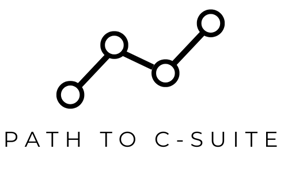Landing Your First CTO Job
1/25/20255 min read


Essential Skills Required for a CTO Position
Securing a Chief Technology Officer (CTO) position necessitates a blend of technical prowess and exemplary leadership qualities. A proficient CTO must exhibit a strong command of software development, including familiarity with multiple programming languages and development frameworks. This technical foundation enables them to oversee projects effectively and assess the feasibility of new technologies. In addition to software development skills, a CTO should possess substantial knowledge of IT infrastructure. Understanding how various components—such as servers, networks, and databases—interact allows for informed decision-making regarding system improvements and operational efficiencies.
Cybersecurity is another critical technical area for CTOs, as concerns regarding data breaches and cyber threats continue to escalate. An effective CTO must be well-versed in risk management practices to mitigate vulnerabilities and ensure that the organization maintains a secure technological environment. Moreover, as businesses increasingly adopt cloud solutions, expertise in cloud computing technologies becomes indispensable. This proficiency not only facilitates cost-effective resource management but also enhances scalability and performance across the organization.
However, technical skills alone do not suffice for aspiring CTOs. Soft skills, particularly communication, are vital for facilitating collaboration across diverse teams and departments. A CTO must convey complex technical concepts in an understandable manner to stakeholders with varying levels of technical knowledge. Additionally, strong problem-solving abilities allow CTOs to navigate challenges and swiftly develop innovative solutions to unforeseen issues. Team management skills also play a crucial role, as leading a technology department involves not only directing projects but also mentoring talent and fostering a cohesive work environment.
Lastly, remaining current with industry trends and emerging technologies is essential for any CTO. Continuous learning enables them to identify opportunities for leveraging new tools and solutions that can propel the organization toward its goals, ensuring that the technology strategy remains agile and competitive.
Personal Attributes and Experience That Set You Apart
Transitioning into a Chief Technology Officer (CTO) role demands not only a solid technical foundation but also a unique set of personal attributes and experiences that can significantly enhance your candidacy. One essential characteristic is strategic thinking. A successful CTO must be capable of envisioning the long-term technological direction of an organization and crafting a robust strategy to achieve those goals. This ability allows for alignment between technology initiatives and business objectives, demonstrating the critical connection that should exist in any tech leadership position.
Another vital attribute is adaptability. In the fast-paced tech industry, a CTO must thrive in an environment that continually evolves, requiring a willingness to embrace change and innovate. This trait not only aids in navigating disruptions but also in leveraging new technologies to improve operational efficiencies. For instance, a CTO who has previously led a team through the implementation of a cloud-based solution during a market transition exhibits adaptability that potential employers find appealing.
Emotional intelligence is equally important. A CTO must engage with diverse teams, manage conflicts, and inspire innovation while fostering a collaborative atmosphere. Emotional intelligence informs decision-making processes and enhances communication, allowing for productive interactions across varied stakeholders. Leaders who have successfully mentored emerging tech professionals illustrate how a robust emotional skill set translates into effective team management.
Furthermore, relevant experiences such as previous leadership roles or significant project management successes can set candidates apart in the pursuit of a CTO position. For example, managing a cross-functional team to develop a groundbreaking software product not only broadens one’s technical expertise but also showcases your ability to lead diverse talents towards a common goal. Real-world examples can reinforce the narrative of how these attributes and experiences contribute to successful CTO careers.
Navigating the Path to Your First CTO Role
Securing your initial role as a Chief Technology Officer (CTO) requires a multifaceted approach that combines strategic networking, personal branding, and continuous learning. Building a robust professional network is paramount; it opens doors to opportunities, insights, and connections within your industry. Engage actively in tech meetups, forums, and online communities, as these platforms can facilitate relationships with seasoned professionals and potential employers. Don't hesitate to reach out to others in your desired field, as networking can often lead to mentorship possibilities that are invaluable in your career journey.
Seeking mentorship is a critical step in the navigation process. Mentors can provide guidance, advice, and can share their experiences navigating their own careers. Connecting with someone who has successfully transitioned to a CTO role can provide you with unique insights and actionable advice. They can help you navigate industry challenges and may even introduce you to valuable contacts, enhancing your professional efforts. Identify experienced professionals within your network or industry and establish a rapport to foster an enriching mentor-mentee relationship.
Enhancing your personal brand also plays a crucial role in standing out as a candidate for a CTO position. This can be accomplished through actively sharing knowledge and successes on platforms such as LinkedIn or participating in content creation, like articles or blogs, related to technology and leadership. Highlight your skills, experiences, and achievements to portray yourself as a knowledgeable and qualified candidate effectively. In addition to personal branding, capitalizing on opportunities for career growth through promotions or lateral movements within an organization can build a strong resume tailored for a CTO position.
Lastly, commit to continuous learning by pursuing relevant courses, certifications, and attending tech conferences. These endeavors will not only boost your qualifications but also offer essential networking opportunities with thought leaders and fellow professionals in the field. Engage in self-improvement through staying updated on the latest technologies and leadership practices; this approach ultimately positions you as a competitive candidate when vying for your first CTO role.
Advantages of Holding a CTO Position
Assuming the role of Chief Technology Officer (CTO) offers numerous advantages that can significantly enhance both professional and personal growth. A pivotal benefit of this position is the capacity to influence the direction of the company. As a member of the executive team, the CTO plays a crucial role in strategic decision-making, shaping technology initiatives that align with business goals and drive innovation. This influence extends beyond mere technological advancement; it involves steering the company towards a competitive edge in the marketplace.
Additionally, the CTO position fosters abundant opportunities for innovation. Leading technological transformations not only challenges individuals to think creatively but also allows them to implement cutting-edge solutions that can redefine industry standards. The ability to experiment with emerging technologies positions the CTO at the forefront of development and can lead to breakthroughs that significantly benefit the organization.
Further, the role often presents substantial career advancement opportunities. As organizations increasingly rely on technology, skilled CTOs are in high demand across various sectors. This demand translates to enhanced job security and the possibility of progressing into higher executive roles or even entrepreneurial ventures based on valuable experience gained in this position.
From a financial perspective, holding a CTO position typically correlates with a lucrative compensation package. With competitive salaries, bonuses, and equity options, the financial rewards reflect the critical nature of the role. Beyond tangible financial gains, the position also contributes to a strong sense of personal fulfillment. Successfully managing complex projects and leading teams towards shared goals cultivates a sense of achievement and legacy. By consistently pushing technological boundaries, a CTO can establish themselves as a thought leader in the technology landscape, leaving a lasting impact on the organization and the industry as a whole.
Contact & About
Newsletter
© 2025. All rights reserved.
Legal
About Us


